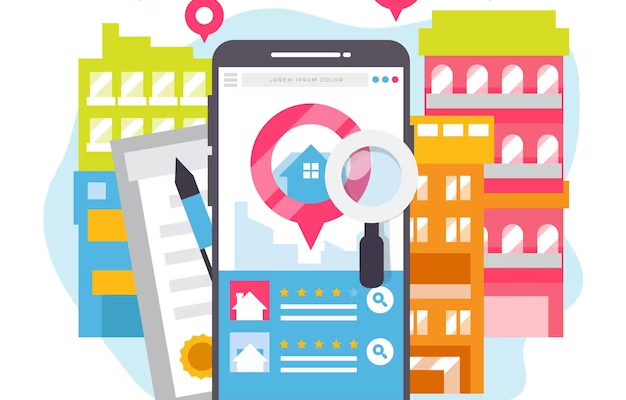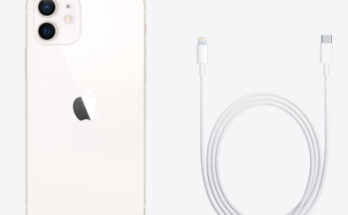The secret to success in the quick-paced world of e-commerce is providing a faultless online purchasing experience. Progressive Web Apps (PWAs), a digital breakthrough, are revolutionizing how ecommerce businesses interact and retain customers. PWAs have become the ideal option in this age of rapid gratification, where every second matters. These cutting-edge web applications offer super-fast loading times, offline accessibility, and a user-friendly interface by fusing the greatest features of websites with native mobile apps.
Learn how PWAs are transforming the ecommerce industry by giving companies the tools they need to reduce cart abandonment, increase conversions, and redefine customer pleasure. The many ways that PWA ecommerce development is driving e-commerce organizations toward a future of unmatched growth and client loyalty will become clear as we explore deeper.
What is a Progressive Web App (PWA)?
A cutting-edge online application known as a Progressive online App (PWA) combines the greatest elements of both regular websites and native mobile apps. Progressive web apps for e-commerce are made to provide users with the best possible online experience. They are created with common web tools like HTML, CSS, and JavaScript but include distinctive features that make them stand apart.
PWA E-commerce remarkably quickly, even on sluggish connections, and responds quickly to different devices. Since they can run without internet or with spotty coverage, they are dependable. PWA for e-commerce businesses also keeps users interested with navigational simplicity, push notifications, and native app-like interactions. PWA for E-commerce is a game-changer in the digital arena because of this advancement in web development, which strives to close the experience gap between web and mobile app experiences.
Key Features Of PWAs
PWAs, which offer a variety of features that blend the best of traditional websites and native mobile apps, are revolutionizing the way people engage with websites. The main characteristics of PWAs are listed below, in paragraph form:
- Responsive: PWAs are created to be responsive, effortlessly adjusting to different screen sizes and orientations. This means that the PWA’s user interface is the same and is pleasant regardless of the device a user uses to view it—a smartphone, tablet, or desktop computer.
- Fast Loading: PWAs put speed first. They use methods like caching to guarantee quick loading even with sluggish or unstable network connections. This is essential for increasing user retention and lowering bounce rates.
- Functionality when Offline: PWAs’ capacity to function when Offline or with Sporadic Connectivity is one of their most distinctive features. They can cache material and data, giving consumers uninterrupted usefulness by letting them access certain features or view previously visited pages even when they are offline.
- Push Notification: PWAs provide push notifications, enabling companies to send real-time information, special offers, and individualized alerts straight to users’ devices. This function encourages client re-engagement and increases conversions.
- Add to Home Screen: Just like native apps, users can add PWAs to their device’s home screen. Users will find it simpler to return to the PWA without having to look for it in their browser bookmarks thanks to the improved visibility and accessibility.
- Protection: PWAs are delivered via HTTPS, guaranteeing user data protection and privacy. This is crucial for e-commerce websites that deal with sensitive client data. The safe connection increases users’ trust.
- Discoverability: PWAs may be found using search engines, in contrast to native apps. This implies that the PWA’s content may be indexed and show up in search results, resulting in an increase in natural traffic to the website.
- Lower Cart Abandonment: PWAs offer a simple and distraction-free purchasing experience. Users are less likely to leave their shopping carts empty because of their quick loading times and user-friendly interfaces, which help increase conversions and income.
- Development Cost-Effectiveness: Creating and maintaining PWAs is frequently less expensive than creating native mobile apps for various platforms. Businesses may provide a high-quality user experience while saving progressive web app development costs on development and maintenance.
How PWAs Improve the Experience of Shopping in Ecommerce
The online purchasing experience is being profoundly changed by progressive web apps (PWAs), which increase customer engagement and happiness. Here is a thorough explanation of how PWAs accomplish this:
- Lightning-fast loading times: In ecommerce, speed is crucial, and PWAs thrive in this regard. PWAs guarantee that product pages and content load almost rapidly since they are optimized for quick loading, even on slower connections. This quick response time keeps users interested and lowers page abandonment rates dramatically.
- Offline Access: Connectivity problems are a common occurrence for online shoppers. By enabling customers to explore products, view information, and add items to their cart even when they are offline or have a shaky internet connection, PWAs take on this issue head-on. Users are guaranteed continual access to their purchasing experience thanks to this smooth offline access.
- Smooth Device-to-Device Compatibility: PWAs provide a constant buying experience on a range of gadgets. Customers may access the same services, content, and preferences whether they are using a desktop, tablet, or smartphone. Because of the cross-device interoperability, clients can easily purchase from their favorite platform with no effort.
- Push Notifications: For e-commerce companies, push notifications are a valuable tool. Because PWAs offer push notifications, businesses may deliver personalized recommendations, real-time alerts, and special deals directly to users’ smartphones. Customers are kept informed and interested by this feature, which also motivates them to check the website again for fresh deals.
- Reduced Cart Abandonment: In e-commerce, cart abandonment is a common issue. PWAs are made to reduce interruptions so that users may concentrate on the buying process. Users are less likely to leave their shopping carts empty because to the quick loading times and clear interfaces, which helps increase conversions and revenue.
- Benefits of SEO: Search engine optimization (SEO) is essential for the success of e-commerce. Search engines can index PWAs, improving discoverability. Their user-friendly layout and quick page loads have a favorable effect on search engine rankings, increasing the volume of natural traffic to the website.
- Cost-Effective Development: PWAs provide a more affordable option than creating and maintaining native mobile apps for many platforms. Every progressive web app development company can reduce development expenses while still providing their clients with an app-like experience.
- Data Security: PWAs employ HTTPS to protect client data’s security and privacy. Particularly at a time when concerns about data breaches and online threats are at an all-time high, this security aspect is crucial for establishing confidence with online shoppers.
Successful Ecommerce PWAs
Several e-commerce companies have used Progressive Web Apps (PWAs) to improve online purchasing and spur growth. Let’s look at some prominent instances of these effective ecommerce PWAs:
1. Flipkart:
Flipkart, one of the largest e-commerce sites in India, began utilizing PWAs to better serve its sizable user base. With a 70% boost in conversions and a 40% higher rate of re-engagement following the installation of a PWA, the results were excellent. With its PWA, Flipkart gave users a mobile-optimized, lightning-fast experience that drastically cut load times, boosting user happiness and sales.
2. AliExpress:
Global online store AliExpress successfully made the switch to a PWA. The PWA caused a 74% increase in session duration and a 104% increase in conversion rates for new users. These amazing numbers were made possible by the faster load times, seamless offline access, and app-like interactions. With a 30% faster load time and a more responsive and user-friendly purchasing experience, AliExpress’s PWA also improved the user experience.
3. The Washington Post:
The Washington Post’s success with its PWA, despite not being a traditional ecommerce site, is a great illustration of how PWAs may increase user engagement and subscription rates. Mobile search users increased by 23%, load times improved by 88%, and the number of returning mobile users also increased by 23% on the PWA. This highlights how content-based websites may leverage PWAs to improve user experience and retention.
4. Lancôme:
A well-known cosmetics company, Lancôme, had great success with its PWA. Fast loading times, offline access to product information, and an engaging, app-like buying experience were all features of Lancôme’s PWA. The PWA increased mobile sessions by 51% and conversions by 17%, demonstrating the potency of PWAs in the cosmetics and beauty sector.
5. Trivago:
A PWA was implemented by the hotel booking website Trivago to improve its mobile user experience. The PWA increased clickouts to hotel offers by 97%, which suggests better user engagement and conversions. Users with low data plans can benefit from the PWA’s lightweight design, which also offers a dependable and quick browsing experience.
Conclusion
Progressive Web Apps (PWAs) have become a lifeline for ecommerce companies at a time when online consumers demand excellent user experiences. Additionally, they provide push notifications, flawless cross-device compatibility, lightning-fast loading times, offline access, and more. Ecommerce companies can improve client engagement, lower cart abandonment, and increase conversion rates by implementing PWAs. The success of Flipkart and AliExpress serves as an example of the indisputable potential of PWAs to alter ecommerce. PWAs are more than just a fad; they’re a calculated move that has the potential to completely change how people shop online in the future. This is why it is preferred to hire progressive web app developers.
Also Read: The Role of Smart Contracts in Web3 Development
Adopting cutting-edge technology like PWAs is necessary to keep ahead of the competition as the ecommerce industry changes continuously. In addition to changing the way people shop, these web applications are also raising the bar for consumer involvement and satisfaction. PWAs are demonstrating to be the ultimate instrument for ecommerce success in the quest to win the hearts and wallets of online buyers.




